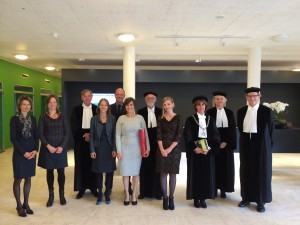Full reference: Karimi Saeid Mr. , Biemans Harm J.A. Asst. Prof. , Lans Thomas Dr. , Chizari Mohammad Prof. , Mulder Martin Prof. , (2014) “Effects of role models and gender on students’ entrepreneurial intentions: “, European Journal of Training and Development, Vol. 38 Iss: 8
Purpose
Drawing on the Theory of Planned Behaviour (TPB), the present study explores the effects of entrepreneurial role models on entrepreneurial intention and its antecedents and examines the question of whether the effects vary by gender.
Design/methodology/approach
Data was collected from a sample of 331 students at seven universities in Iran. Structural equation modelling and bootstrap procedure were used to analyse the data.
Findings
Consistent with the TPB, our results show entrepreneurial role models to indirectly influence entrepreneurial intentions via the antecedents of intention. No gender differences in the relationship between perceived behaviour control and entrepreneurial intentions was found, but gender did moderate the other relationships within the TPB. Attitude towards entrepreneurship was a weaker predictor and subjective norms a stronger predictor of entrepreneurial intentions for female students than for their male counterparts. Furthermore, perceived behaviour control and attitudes towards entrepreneurship were more strongly influenced by role models for females as opposed to male students.
Research limitations/implications
Future studies should go beyond examining the mere fact of knowing entrepreneurial role models to examine the mechanisms underlying the relationship between role models and entrepreneurial intentions.
Practical implications
The results of this study have clear implications for both educators and policy makers.
Originality/value
The study contributes to the entrepreneurship literature by incorporating entrepreneurial role models and gender into the TPB and investigating their mediating and moderating effects within the model.

